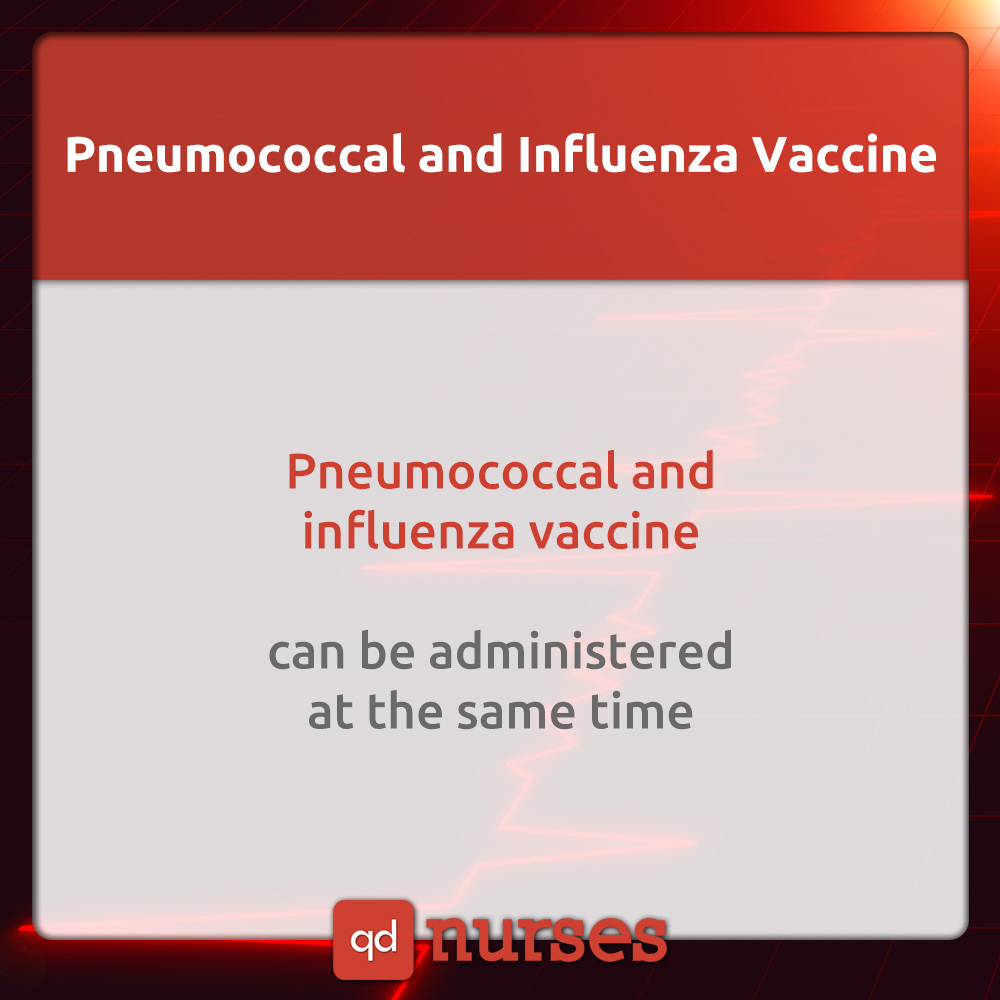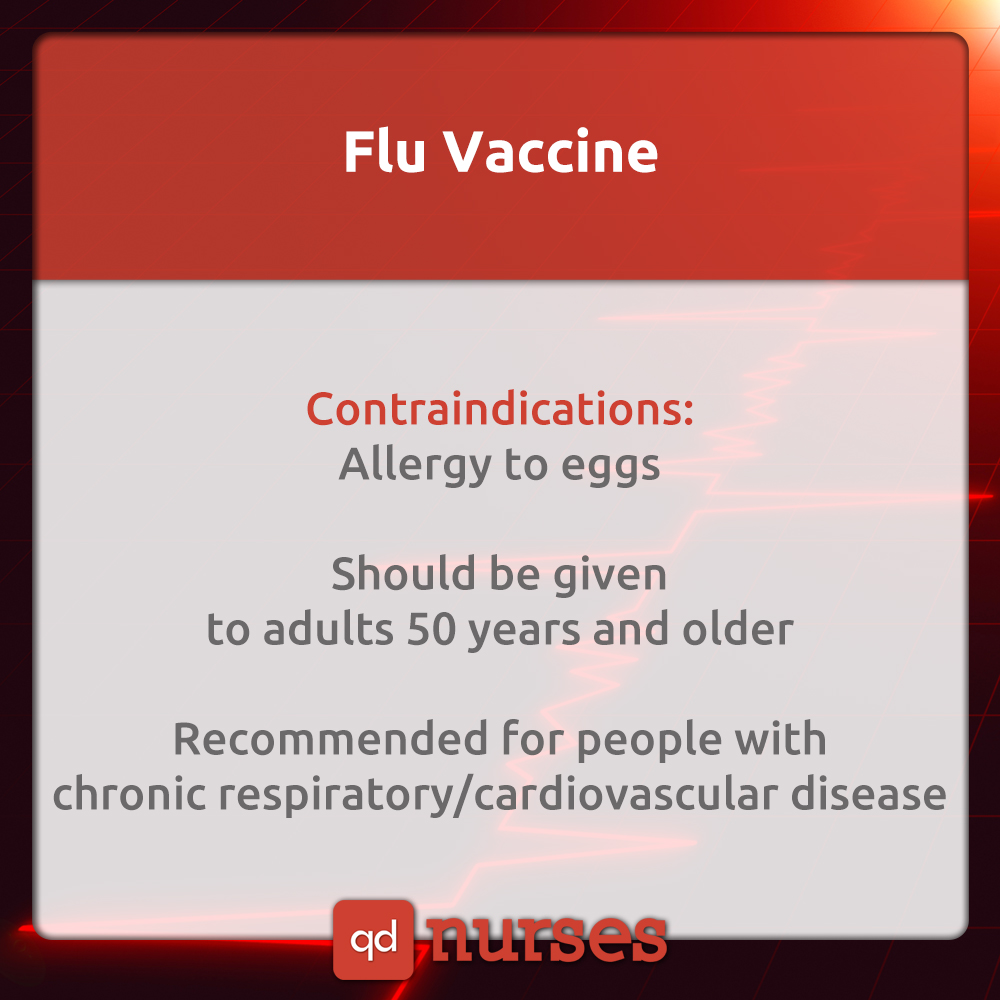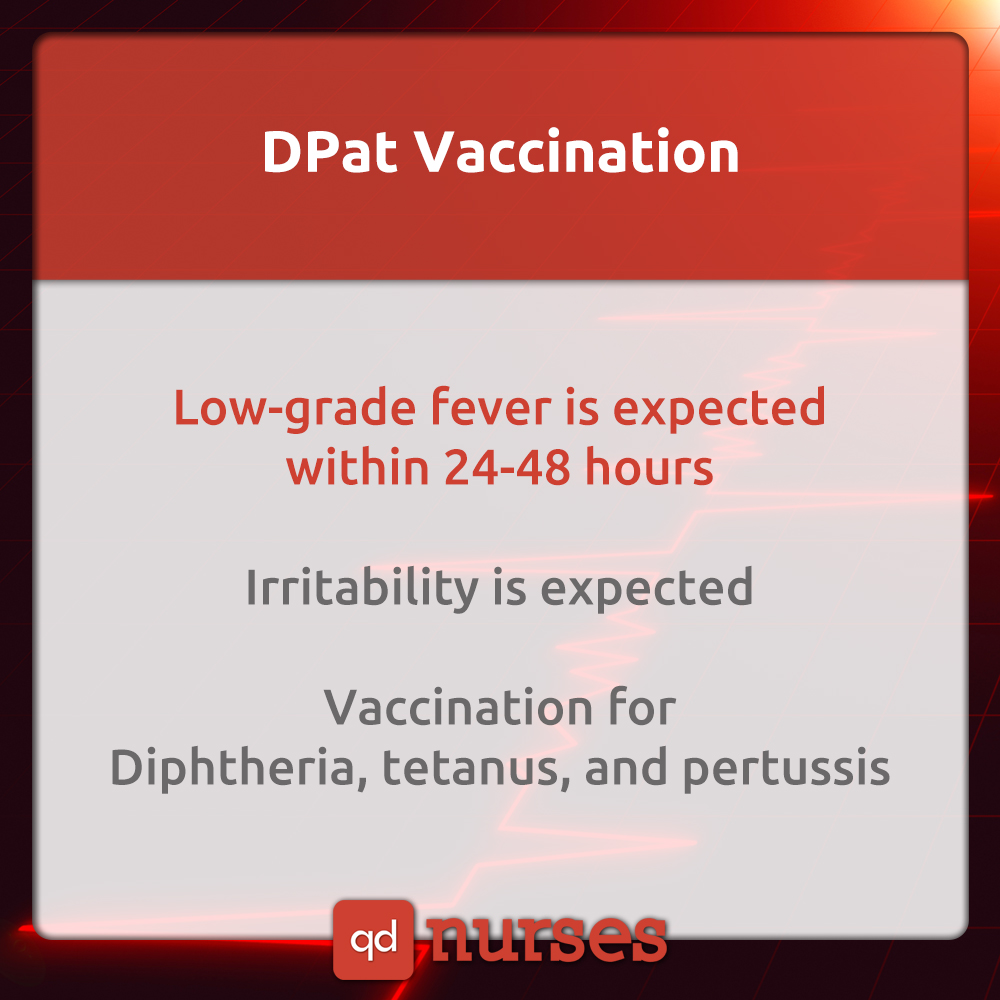Time to save now and use it for later! No matter what field of nursing you get yourself into, you will need to learn about vaccination.
“Vaccination is the administration of antigenic material to stimulate an individual’s immune system to develop adaptive immunity to a pathogen.” (Wikipedia)
Don’t be surprised to see a NCLEX question on vaccination pop up!

Pneumococcal and influenza vaccine can be administered at the same time.
Real world: Check with your policy as a lot of departments will want to administer these vaccinations on separate days for any reaction.
Also, don’t forget to ask the patient if they have any allergies to eggs or previous reactions to a vaccination.

Diphtheria, tetanus, and pertussis are given at the ages of 2, 4, and 6 months.
Inactivated polio virus is given at the age of 2, 4, and 12-18 months.
Hepatitis B is given at 0, 1, and 6 months.
MMR is given at 15 months.

Hepatitis B vaccination is given at 0, 1, and 6 months. This is also give to dialysis patients who have a high risk for contracting Hepatitis B vaccination. Dialysis patients receive this in 4 dosages at 0, 1, 2, and 6 months.

Flu vaccination should not be given to a patient who has an allergy to eggs. This should be recommended to adults 50 years and older. This is recommended for patients with chronic respiratory/cardiovascular disease.

DPat Vaccination can cause a low-grade fever with 24-48 hours. The patient can be offered acetaminophen. Irritability can be expected. This is a vaccination for diphtheria, tetanus, and pertussis.

Chickenpox and smallpox vaccinations are recommended for first responders.
